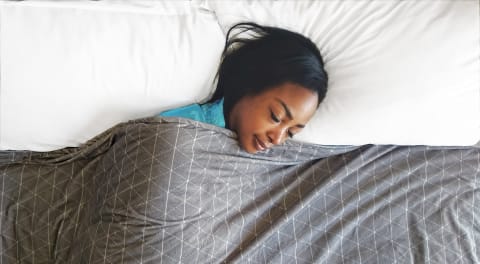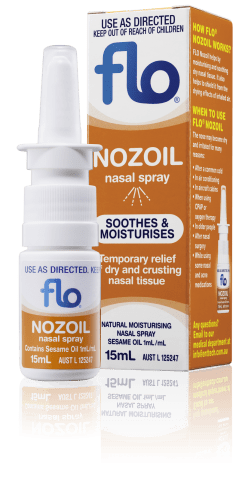Medicare and CPAP Equipment
Medicare Cover CPAP Equipment
One of the most common questions we hear from our team at Sove CPAP Clinic is: “Does Medicare cover CPAP equipment?” The answer is more nuanced than a simple yes or no.
In Australia, Medicare does not provide a direct rebate or national subsidy for buying CPAP machines or supplies. Unlike prescription medications on PBS, you can’t walk into a store, buy a CPAP device, and expect Medicare to reimburse you.
Instead, support for CPAP therapy is delivered through a patchwork of state-based programs managed by public hospitals and respiratory clinics. This means the level of assistance you receive depends on where you live and whether you qualify for your local program.
Medicare itself primarily helps with the diagnosis process, funding sleep studies and consultations with sleep specialists. This initial step is crucial, as it paves the way for further support—both public and private.
CPAP Therapy for Sleep Apnea Patients
While Medicare doesn’t pay for the CPAP machine itself, it plays a vital role in helping patients access the therapy they need. Here’s how it works:
First, your GP can refer you for a Medicare-funded sleep study to diagnose obstructive sleep apnea (OSA). These studies, conducted in a sleep laboratory or sometimes at home, measure your breathing and determine the severity of your condition. The most common measure is the Apnea-Hypopnea Index (AHI)—if your AHI is over 15, you likely have moderate to severe OSA, which qualifies you for treatment.
Once diagnosed, your sleep specialist can prescribe CPAP therapy, opening the door to potential support through state-based programs or private health insurance. While the machine itself isn’t reimbursed by Medicare, the diagnostic steps are essential for securing other types of funding.
CPAP Masks and Filters May Be Covered by State-Based Programs
Anyone who’s used a CPAP machine knows that it’s more than just the device—it’s the supplies that make the therapy effective and comfortable. CPAP masks, filters, tubing, and water chambers are essential, and keeping them in good condition is key to getting the full benefits of therapy.
Although Medicare doesn’t fund these supplies, some state-based programs and public hospitals do provide them for eligible patients, often free or at a reduced cost. These programs are typically reserved for those with significant clinical need and financial hardship—meaning you may need to hold a Pensioner Concession Card to qualify.
Common CPAP supplies and CPAP accessories include:
- Masks: Nasal, nasal pillows, or full-face options, depending on your breathing habits and comfort.
- Filters: Essential for keeping the air you breathe clean.
- Tubing: Connects the machine to the mask, carrying the airflow.
- Humidifier chambers: Reduce dryness and irritation.
- Headgear and straps: Keep your mask snug for an effective seal.
Popular models like the ResMed AirSense 10, ResMed AirSense 11, and Philips DreamStation have compatible accessories that align with public program requirements and private insurance rebates.
While Medicare itself doesn’t cover the machine, state-based programs and public hospitals often require proof of treatment compliance before continuing support. This means you need to show th[at you’re using the machine consistently—usually at least 4 hours per night on 70% of nights.
Modern CPAP machines, like the ResMed AirSense 11 and Philips DreamStation, automatically record usage data. This data can be downloaded or transmitted wirelessly to your provider, helping you meet compliance requirements.
Eligibility for Government-Funded CPAP Programs
It’s important to know that simply having a diagnosis of OSA doesn’t guarantee a free CPAP machine. Most state-run programs prioritise patients who:
- Have moderate to severe OSA (AHI >15) documented in a Medicare-eligible sleep study.
- Have a referral to a public hospital clinic or sleep service.
- Hold a concession card or demonstrate financial hardship.
- Agree to regular follow-up and therapy compliance monitoring.
Don’t be discouraged if you’re not eligible for a public hospital program. At Sove CPAP Clinic, we’ll help you explore other options, from private health insurance rebates to payment plans.
ALWAYS FOLLOW THE DIRECTIONS FOR USE. CPAP is used for Obstructive Sleep Apnoea treatment. When considering whether a sleep study or CPAP is right for you, speak to your doctor. Medicare criteria and T&Cs apply.
Frequently Asked Questions
Does Medicare cover all the costs associated with CPAP therapy?
No, Medicare does not directly cover the cost of CPAP machines or accessories in Australia. Medicare does fund diagnostic sleep studies (either in a sleep lab or at home) and consultations with sleep specialists, which are essential steps for obtaining a proper diagnosis and prescription for CPAP therapy. However, when it comes to actually purchasing or renting the CPAP device itself, Medicare does not provide a rebate or national subsidy.
Private health insurance can also help offset the cost of CPAP equipment under “Extras” cover. If you have private health insurance, you might be able to claim a rebate for all or part of the cost of your device and accessories. It’s worth checking with your health fund to understand what is covered. At Sove CPAP Clinic, we’re experts at helping patients navigate all these options and can help you understand exactly what’s available for your unique situation.
Will Medicare cover my CPAP machine if I purchase it online?
No. Medicare in Australia does not reimburse patients for CPAP machines purchased online—or anywhere else, for that matter. Medicare funding supports diagnostic testing and consultations, but not the purchase of equipment. This means that if you choose to buy a CPAP machine online, you’ll need to pay the full price upfront.
Buying online also means you might miss out on personalised support, such as professional mask fitting, setup, and ongoing troubleshooting—services that are essential to successful CPAP therapy. At Sove CPAP Clinic, we ensure that every device sold (online or in-store) is fully supported with guidance on setup, cleaning, and compliance. We also provide all necessary paperwork for insurance claims and help you coordinate with your health fund so that you get the maximum rebate possible.
Can I choose my CPAP machine brand or model through Medicare?
Medicare doesn’t fund the purchase of CPAP equipment, so it doesn’t directly control which brand or model you choose. This means you have the freedom to select the CPAP machine that best suits your needs and preferences, if it meets clinical requirements set by your sleep specialist. Popular brands available in Australia include ResMed, Philips Respironics, and Fisher & Paykel. Each brand offers different features—some models are travel-friendly, while others have advanced data tracking or integrated humidification.
How do I know if my CPAP machine is from a Medicare-approved supplier?
This is a common question! In Australia, Medicare does not approve or endorse specific CPAP equipment suppliers because it doesn’t fund the purchase of CPAP machines or accessories. Instead, it funds diagnostic testing and consultations. That means there’s no official Medicare “approved supplier” list for CPAP machines.
If you’re obtaining your CPAP device through a state-based program, public hospital, or DVA, those entities typically have preferred or contracted suppliers that they work with. When you’re using private health insurance, it’s essential to ensure that your supplier can provide the proper documentation needed to process your insurance claim—such as an itemised tax invoice, prescription, and any compliance reports requested by your insurer.
How often can I replace CPAP supplies under Medicare?
Medicare does not provide funding for the replacement of CPAP supplies, such as masks, tubing, or filters. However, if you’re receiving your CPAP device through a state-based program or DVA, they may offer periodic replacement of essential supplies based on clinical needs. This could include an annual mask replacement, tubing every 6–12 months, and filters as recommended by the manufacturer.
For patients using private health insurance, some funds may offer rebates for consumables under their Extras cover. It’s important to check your policy details or call your fund to clarify what’s covered and how often you can claim.
What happens if I need help setting up or troubleshooting my CPAP machine?
Good question! CPAP therapy is most successful when you get the support you need from day one. Medicare doesn’t cover the costs of equipment setup or troubleshooting, but many suppliers, including Sove CPAP Clinic, provide comprehensive support services to help you get started and stay comfortable.
If you receive your CPAP device through a state-based program or DVA, they often provide an initial fitting session, including mask fitting, equipment education, and guidance on using the machine effectively. They may also offer follow-up appointments to check on compliance, troubleshoot any issues, and make adjustments to your therapy as needed.
For patients who purchase their machine privately, Sove CPAP Clinic offers the same high level of support, including:
- Personalised mask fitting to ensure a good seal and comfort
- Step-by-step setup assistance so you feel confident using your device at home
- Education on cleaning and maintenance to keep your equipment running smoothly
- Regular follow-up appointments to monitor therapy effectiveness
- Phone and email support for troubleshooting and quick advice.








